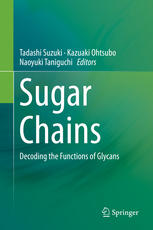

Most ebook files are in PDF format, so you can easily read them using various software such as Foxit Reader or directly on the Google Chrome browser.
Some ebook files are released by publishers in other formats such as .awz, .mobi, .epub, .fb2, etc. You may need to install specific software to read these formats on mobile/PC, such as Calibre.
Please read the tutorial at this link: https://ebookbell.com/faq
We offer FREE conversion to the popular formats you request; however, this may take some time. Therefore, right after payment, please email us, and we will try to provide the service as quickly as possible.
For some exceptional file formats or broken links (if any), please refrain from opening any disputes. Instead, email us first, and we will try to assist within a maximum of 6 hours.
EbookBell Team

4.8
34 reviewsThis book presents the latest breakthrough results in glycobiology regarding the roles of glycans in relation to quality control and transport of protein, the immune system, viral infection, stem cells, the neural system, and various diseases such as cancer, diabetes, chronic obstructive pulmonary disease, muscular dystrophy, and schizophrenia. Although glycoscience has long been regarded as a very specialized field with no simple analytical method, the recent explosive progress in research continues to provide limitless evidence that glycan chains are the key component in various biological phenomena. Cell surface glycans, for example, change with developmental stages or environmental conditions and thus represent a “face” of the cell that is utilized for identification of iPS and ES cells and as biomarkers in diagnosis or detection of cancer. This book comprises 17 chapters, each of which poses outstanding “glyco-related” questions enabling non-specialists to have a clearer idea about what the future direction for further investigation of glycans in their own research fields will be. Also including basic information to understand the nature of glycans, this title serves as an excellent “textbook” for researchers in diverse research fields who are not familiar with, but nevertheless interested in, glycan chains or sugar chains.